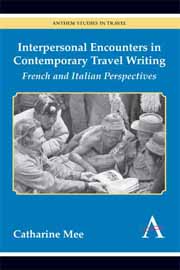Summary
Il est aisé – et d'ailleurs de bon ton – de se moquer des voyages de groupe mais, pour qui ne parle ni ne lit le chinois, c'est encore la seule manière d'être assuré d'avoir vu quelque chose. Se lancer seul, aveugle, sourd-muet dans ce pays immense est aujourd'hui encore une entreprise épineuse qui débouche souvent sur échecs et amertume.
(It's easy – and even good form – to make fun of group tours, but for those who neither speak nor read Chinese it's still the only way to be sure of seeing something. To set out into this vast country alone, blind, deaf and dumb, is still today a tricky undertaking that often results in failure and bitterness.)
Nicolas Bouvier acknowledges that he is reluctant to travel with a group, while admitting that it is sometimes a necessity. His fellow tourists rescue him from loneliness, but his ‘blindness’ and ‘deafness’ are alleviated by a single individual: his guide. Following a guide goes against the stereotype of the independent traveller – it is something tourists do – but travellers like Bouvier are sometimes forced to admit that without a guide or interpreter their travel experience would be impossible or at least incomplete. Even when they do not follow a paid guide or employ an interpreter, all travellers are obliged to seek the aid of an intermediary at some point. Travellees constantly perform acts of guiding and interpreting, frequently on an unofficial basis, with no money changing hands.
- Type
- Chapter
- Information
- Interpersonal Encounters in Contemporary Travel WritingFrench and Italian Perspectives, pp. 33 - 58Publisher: Anthem PressPrint publication year: 2014

